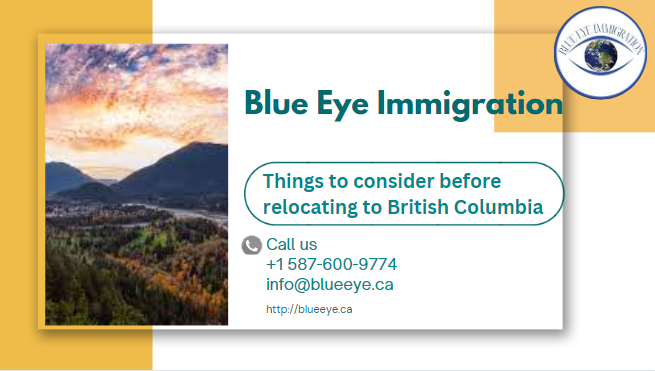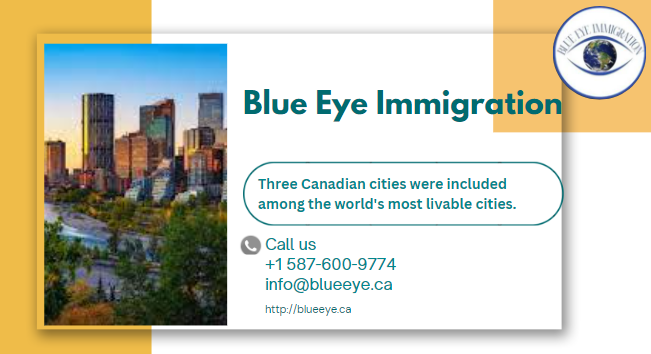British Columbia, the third-biggest province in Canada, is the westernmost region of the nation and is home to more than a million immigrants.
This province, which is home to 40 provincial parks and six national parks, is well known for having some of Canada’s most breathtaking natural scenery. Since British Columbia experiences four different seasons without the extremely cold temperatures frequently observed in other Canadian provinces and territories, the province is also well-known for having gentler weather patterns.
Learn more about arriving in British Columbia as a new immigrant to Canada by clicking this link.
Residing
British Columbia boasts one of the biggest property markets in the nation.
Note: The cost of housing and the kinds of properties that are available in British Columbia, as well as every other Canadian province, may vary depending on things like where you want to settle down and how big your family is.
The following figures show the average rent for a one-bedroom and two-bedroom dwelling unit in this province’s three major Census Metropolitan Areas (CMAs) by population: Vancouver, Victoria, and Kelowna. These figures are from the most recent National Rent Report published by rentals.ca (for August 2023).
One-Bedroom: Victoria ($2,054), Kelowna ($1,947), Vancouver ($3,013)
Two-Bedroom: Victoria ($2,753), Kelowna ($2,790), and Vancouver ($3,918)
Traveling
At least 73% of people dwell in the three major CMAs in this province, Vancouver, Victoria, and Kelowna, and are less than 500 meters from a “public transit access point*.”
*It is at least 90% in Victoria and Vancouver and 73.7% in Kelowna.
While the availability of public transportation in British Columbia varies by city, the SkyTrain, SeaBus, and buses are available in many of the province’s cities.
Nonetheless, a large portion of the population in British Columbia commutes mostly by vehicle, van, or truck. As a result, it’s critical that visitors to British Columbia are aware of the following when it comes to driving there:
Those who are over the legal driving age may use their driver’s license from their home country for their first ninety days of residency in this province.
After these ninety days, immigrants have to get a British Columbia driver’s license from the province.
Workplace
British Columbia is renowned for its many economic sectors, which comprise the following important industries that significantly contribute to the province’s economy:
- Natural Resources
- Technology and Innovation
- Film and Television Production
- Tourism and Hospitality
- Agriculture and Food Production
- Manufacturing
- Construction and Real Estate
An organization called the Immigrant Employment Council of BC is situated in British Columbia and works to match companies with skilled immigrants by providing tools, services, and initiatives to aid recent immigrants in finding employment.
Medical Care
A universal healthcare approach is used to finance public healthcare in Canada. Stated differently, the healthcare services that Canadians get at no cost at the point of sale in British Columbia and throughout the country are funded by a combination of resident taxes.
To be eligible for public healthcare under the province’s Medical Services Plan (MSP), inhabitants of this province must wait two months plus the remaining month following their first establishment as residents.
All immigrants to British Columbia who are qualified for public healthcare can use certain medical services as long as they have a valid health card.
Here is further information on British Columbia health card applications.
Residents of British Columbia may often receive some public health services for free with a health card. However, the beneficiary will have to pay out of pocket for some prescriptions and procedures. For anyone living in this province, private health insurance becomes essential at this point.
Instruction
Under British Columbia, children are required to participate in the province’s educational system from the age of six until they graduate from high school.
British Columbia is proud of its excellent public education system, where K–12 students often receive the highest scores in the world on tests.
This province has a network of independent schools that provide day and boarding programs in addition to the public system. Parents will be required to pay tuition out of pocket in order to enroll their children in private school.
British Columbia offers approximately 275 distinct Designated Learning Institutions (DLIs) for those seeking post-secondary education. It is significant to remember that in British Columbia, only DLIs are allowed to admit foreign students and provide courses that lead to the issuance of Post Graduate Work Permits (PGWPs) following successful completion. After completing some (but not all) of the programs offered by several DLIs in this province, a PGWP may be obtained.
After a year of work experience in Canada, a PGWP holder can increase the number of immigration options leading to permanent residence in Canada for which they may be qualified. This is so because several candidates with Canadian job experience are rewarded under these schemes.
Levy
In British Columbia, there are two types of sales tax: the federal Goods and Services Tax (GST) and the provincial Sales Tax (PST). The PST is now 7% and the GST is 5%.
Depending on one’s tax band, income taxes in this province range from 20% to 53%. The marginal tax rate rises in tandem with an increase in income and the associated tax category. Click here to find out more about British Columbia’s personal income tax rates.
Services for Newcomers in British Columbia
Like in other regions of Canada, newcomer services in British Columbia include community and cultural activities, legal aid, childcare, assistance with finding a job, and much more.
The British Columbia Settlement and Integration Services (BCSIS) program oversees the management of settlement services in British Columbia.
Note: The service provider has a major influence on who is eligible for newcomer services. You could qualify for some services but not others based on your residency status and legal status in Canada.
Go to this provincial government page to learn more about the BCSIS and to locate settlement services that are offered around British Columbia. Click here to view a complete list of all government-funded immigrant settlement services in Canada, which may be sorted by province and service type.

